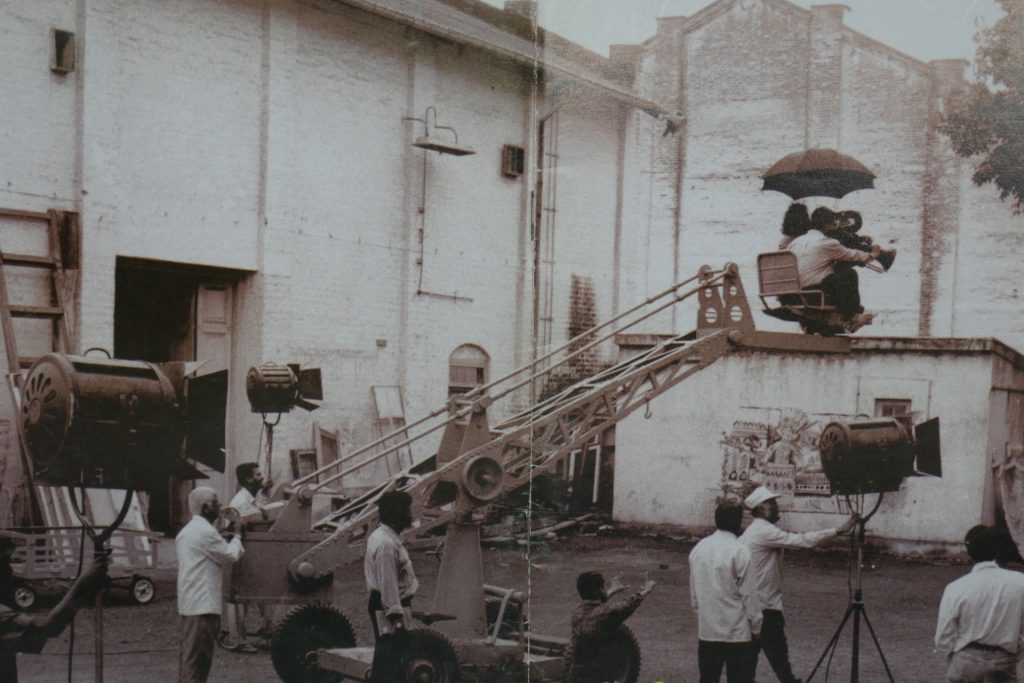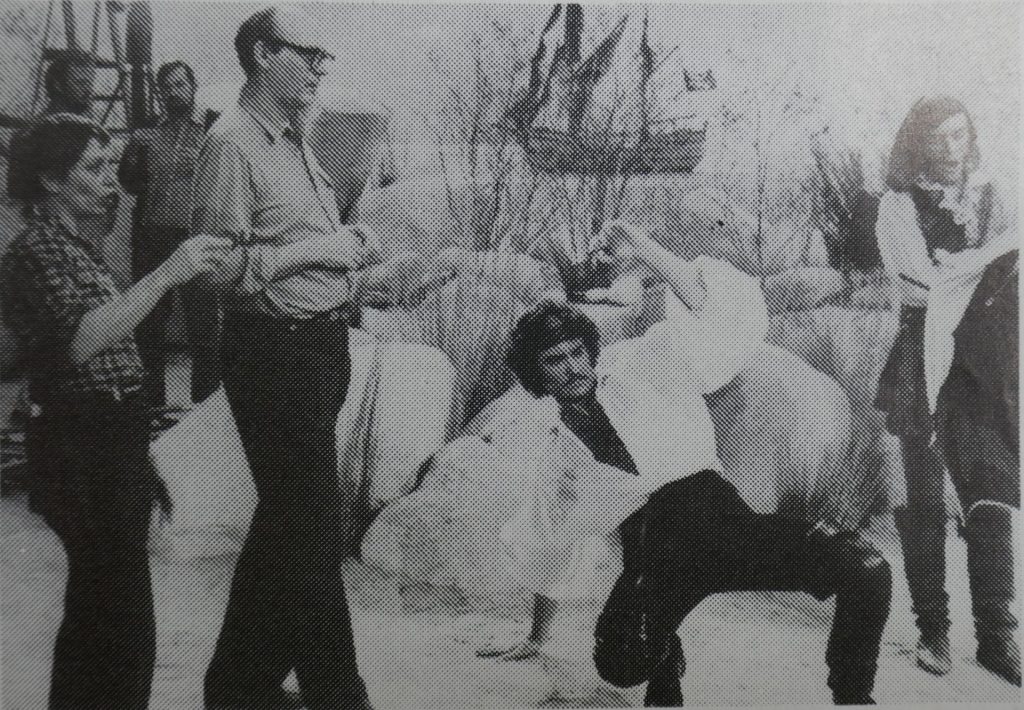What do they have in common and what is the link to Dundee? Find out in this blog by Humanities student Mateo Gaudio as he explores the archive of film producer Alexander De Grunwald whose archive is held by the University.
Alexander De Grunwald was born in July 1944 in Windsor, Berkshire, England. He was a production manager and producer, most notably he managed the productions of ‘Flash Gordon’ (1980), ‘Never Say Never Again’ (1983), ‘The Muppet Christmas Carol’ (1992), and ‘Gandhi’ (1982).
Alexander comes from a family with long ties to the film industry. He was the son of Anatole de Grunwald; a Russian-born film producer and screenwriter who contributed to the scripts of productions such as ‘The Winslow Boy’ (1948) and ‘Holly and Ivy’ (1952). Anatole was the managing director of Two Cities Film and would later go on to form his own production company in 1946 with his brother Dimitri De Grunwald, the uncle of Alexander. This blog will focus on Alexander, but the Archives also holds extensive material relating to Anatole and you can find out more here if you would like to have a further look.  The collection consists of materials including production scripts, film correspondence, and personal ephemera relating to both Alexander De Grunwald and Anatole De Grunwald’s film and television careers. The materials were kept by the family and then stored in Axminster by a friend. Throughout this collection one can trace the proud history of a family heavily invested in the British Film Industry. Seeing Alexander’s beginnings from a St. Andrews business graduate to his contributions to his early productions such as ‘That Lucky Touch’ (1970) you get a sense of the hectic behind scenes work required in the production of films such as budgeting, staff organization, and the tedious back and forths between film executives and directors. Towards the end of his career, Alexander began to give lectures in various film schools like IBSM and festivals like the Singapore Media Fusion where he would frequently discuss the differences between the Western and Eastern film industry, as well as lecture and teach the new generation of film producers.
The collection consists of materials including production scripts, film correspondence, and personal ephemera relating to both Alexander De Grunwald and Anatole De Grunwald’s film and television careers. The materials were kept by the family and then stored in Axminster by a friend. Throughout this collection one can trace the proud history of a family heavily invested in the British Film Industry. Seeing Alexander’s beginnings from a St. Andrews business graduate to his contributions to his early productions such as ‘That Lucky Touch’ (1970) you get a sense of the hectic behind scenes work required in the production of films such as budgeting, staff organization, and the tedious back and forths between film executives and directors. Towards the end of his career, Alexander began to give lectures in various film schools like IBSM and festivals like the Singapore Media Fusion where he would frequently discuss the differences between the Western and Eastern film industry, as well as lecture and teach the new generation of film producers.  Being in the archive office digging through the material kindly donated to us, I came to see the De Grunwald boxes as my little plateaux of sanity within any hectic week, organizing through them a calming task as I would carefully catalogue each of their contents. And even though there were times when it felt as if new boxes kept appearing out of some dark cave within the depths of the archive walls, I came to see that what simply looked like studio adverts, movie scripts, and correspondences, entailed and mapped out the vivid life and work of Alexander De Grunwald through his career as a movie producer. One week I would be reading his very own lecture notes on the key differences between the Indian movie industry and his very praises for those said differences, and the very next I could be looking at detailed studio and set designs for an upcoming production. The range of ephemera is endless.
Being in the archive office digging through the material kindly donated to us, I came to see the De Grunwald boxes as my little plateaux of sanity within any hectic week, organizing through them a calming task as I would carefully catalogue each of their contents. And even though there were times when it felt as if new boxes kept appearing out of some dark cave within the depths of the archive walls, I came to see that what simply looked like studio adverts, movie scripts, and correspondences, entailed and mapped out the vivid life and work of Alexander De Grunwald through his career as a movie producer. One week I would be reading his very own lecture notes on the key differences between the Indian movie industry and his very praises for those said differences, and the very next I could be looking at detailed studio and set designs for an upcoming production. The range of ephemera is endless.  When one tends to think of working in movies, it is easy to imagine the glamorous role of an actor or major director, rarely do we consider the less flashy everyday correspondences that keep the movie sets and productions running smoothly. The De Grunwald collection does just that, one can see the everyday running of film production and what occurs behind the scenes with materials such as budgets, set agreements, schedules, and legal correspondences. It gives a great insight into the world of movie production for anyone thinking of a career path in something similar and it serves as an interesting look at behind the scenes in the making of a blockbuster. This collection highlights the tremendous career of Alexander de Grunwald, giving one an intimate look into his life and career that spanned over four decades. It almost feels as a full circle as we see it span from his humble beginnings all the way till the end where he becomes an established and reputable film producer who is able to share his experiences with the younger generations of film students.
When one tends to think of working in movies, it is easy to imagine the glamorous role of an actor or major director, rarely do we consider the less flashy everyday correspondences that keep the movie sets and productions running smoothly. The De Grunwald collection does just that, one can see the everyday running of film production and what occurs behind the scenes with materials such as budgets, set agreements, schedules, and legal correspondences. It gives a great insight into the world of movie production for anyone thinking of a career path in something similar and it serves as an interesting look at behind the scenes in the making of a blockbuster. This collection highlights the tremendous career of Alexander de Grunwald, giving one an intimate look into his life and career that spanned over four decades. It almost feels as a full circle as we see it span from his humble beginnings all the way till the end where he becomes an established and reputable film producer who is able to share his experiences with the younger generations of film students.

